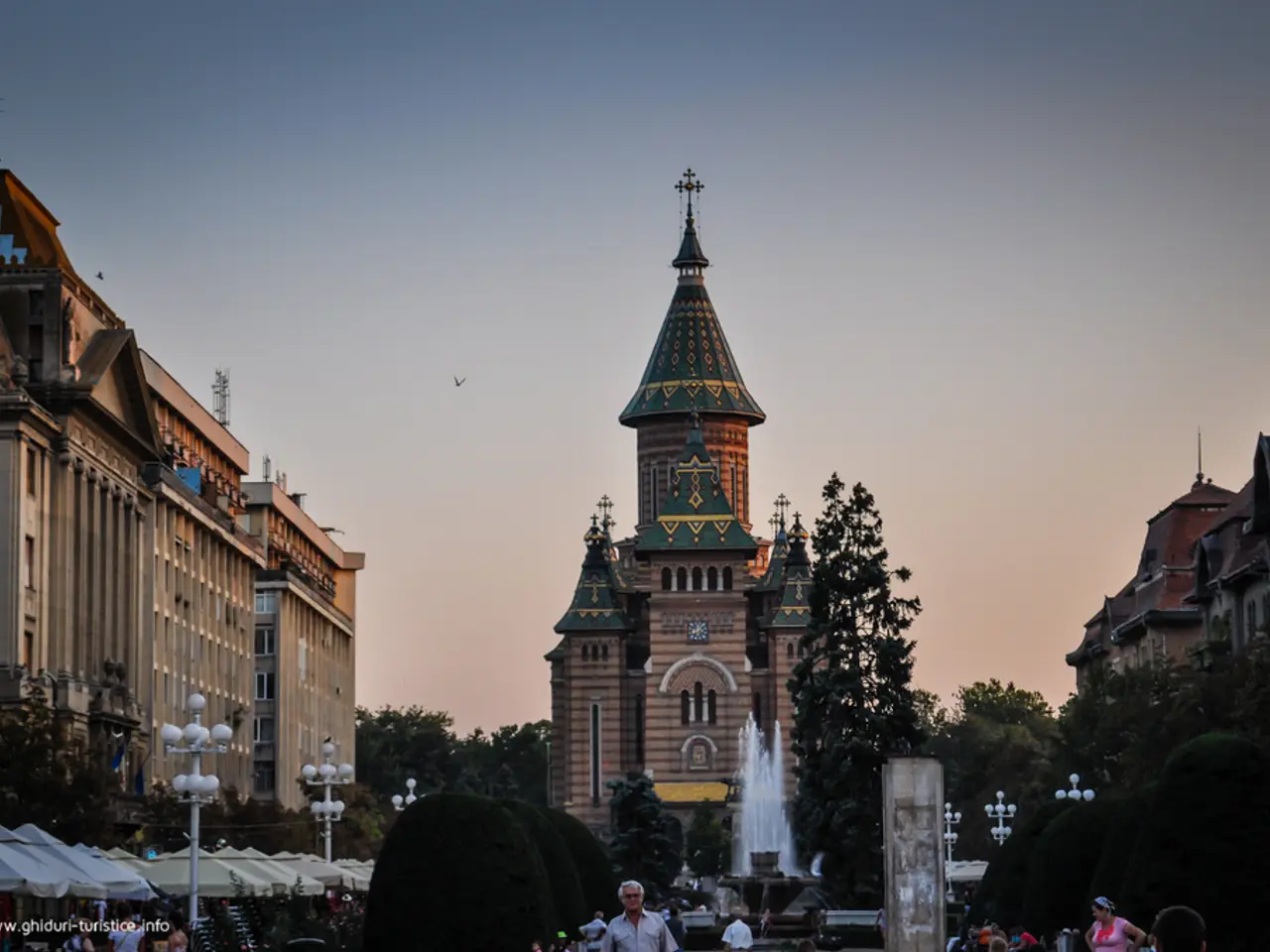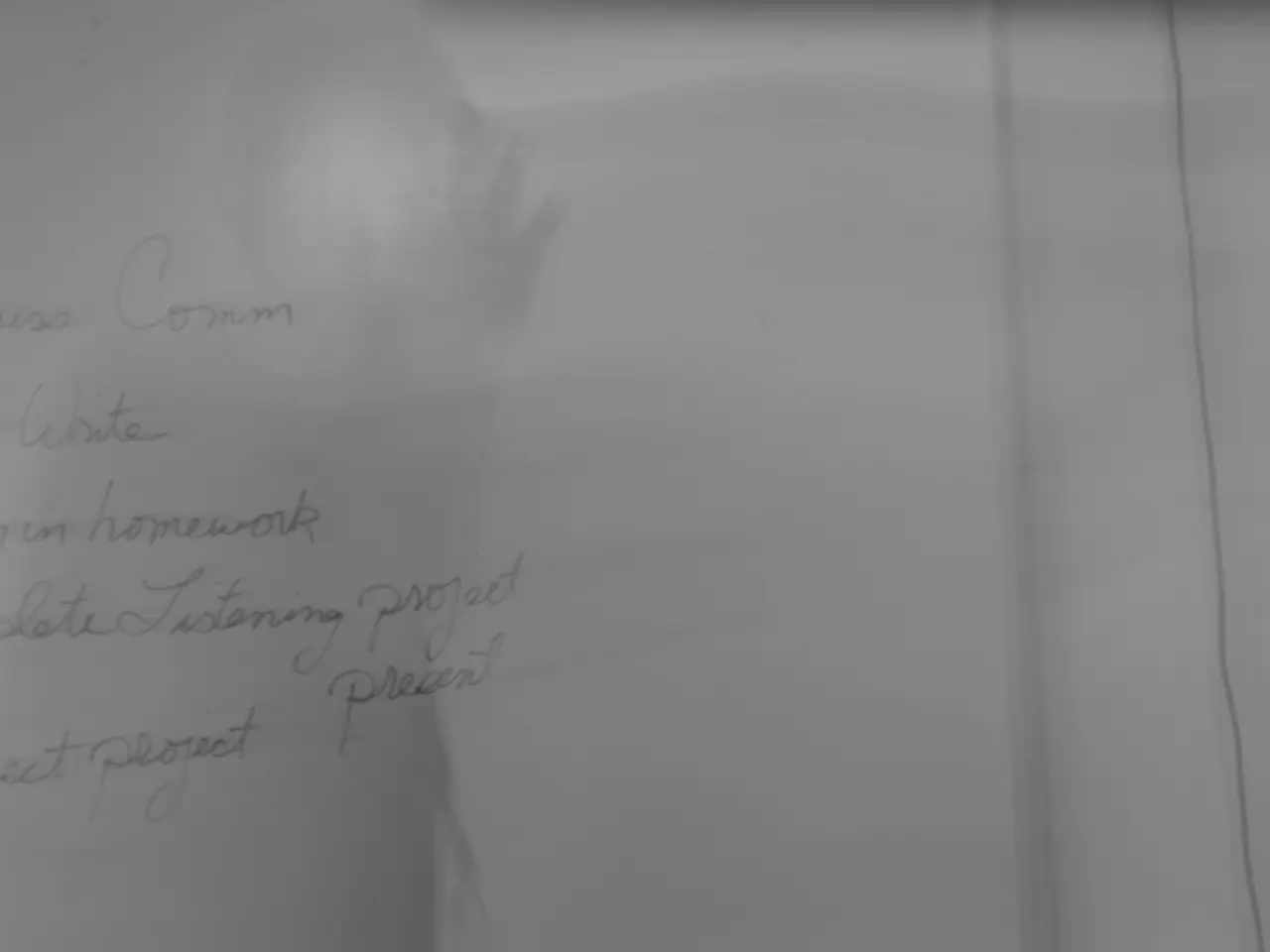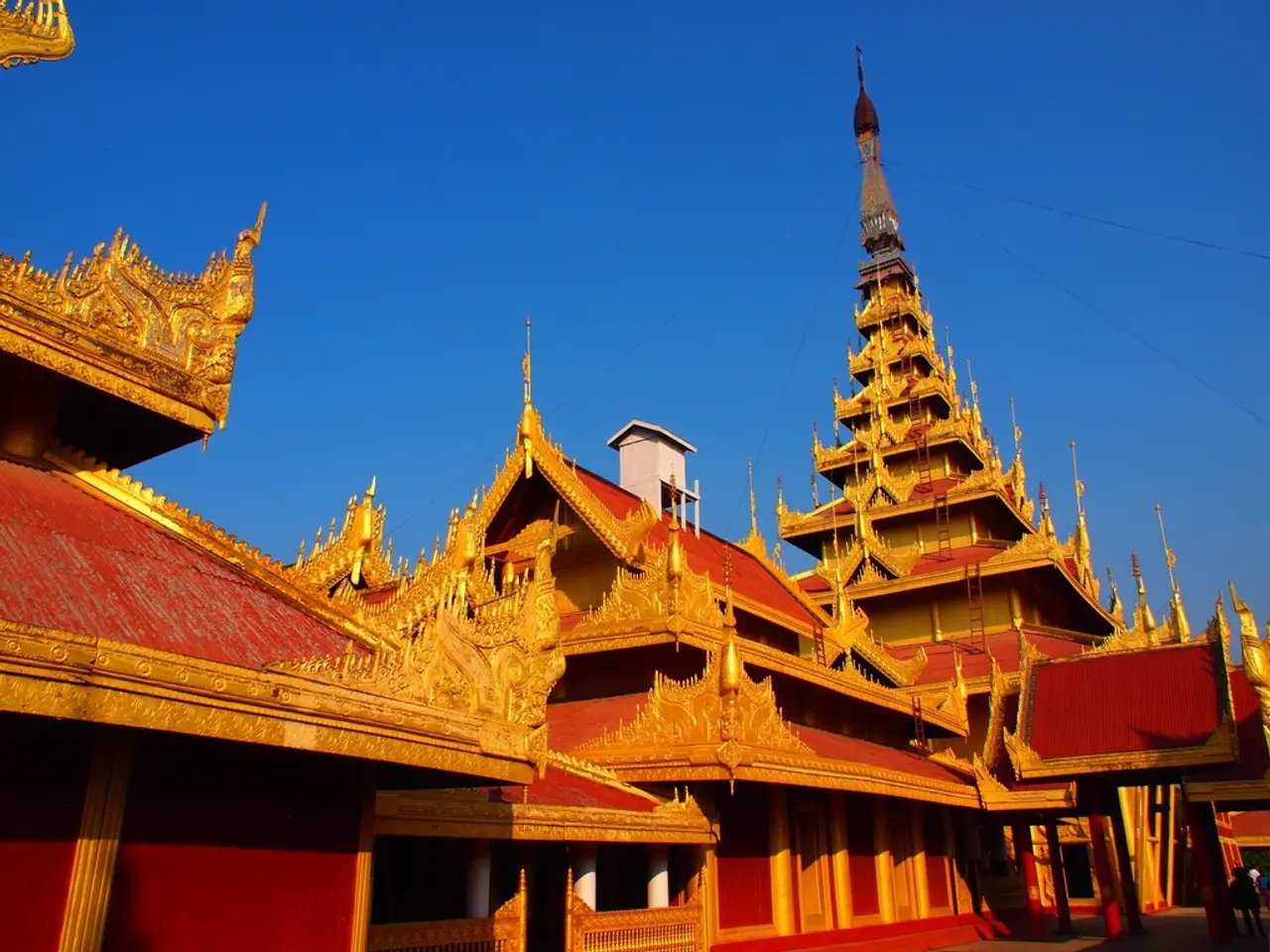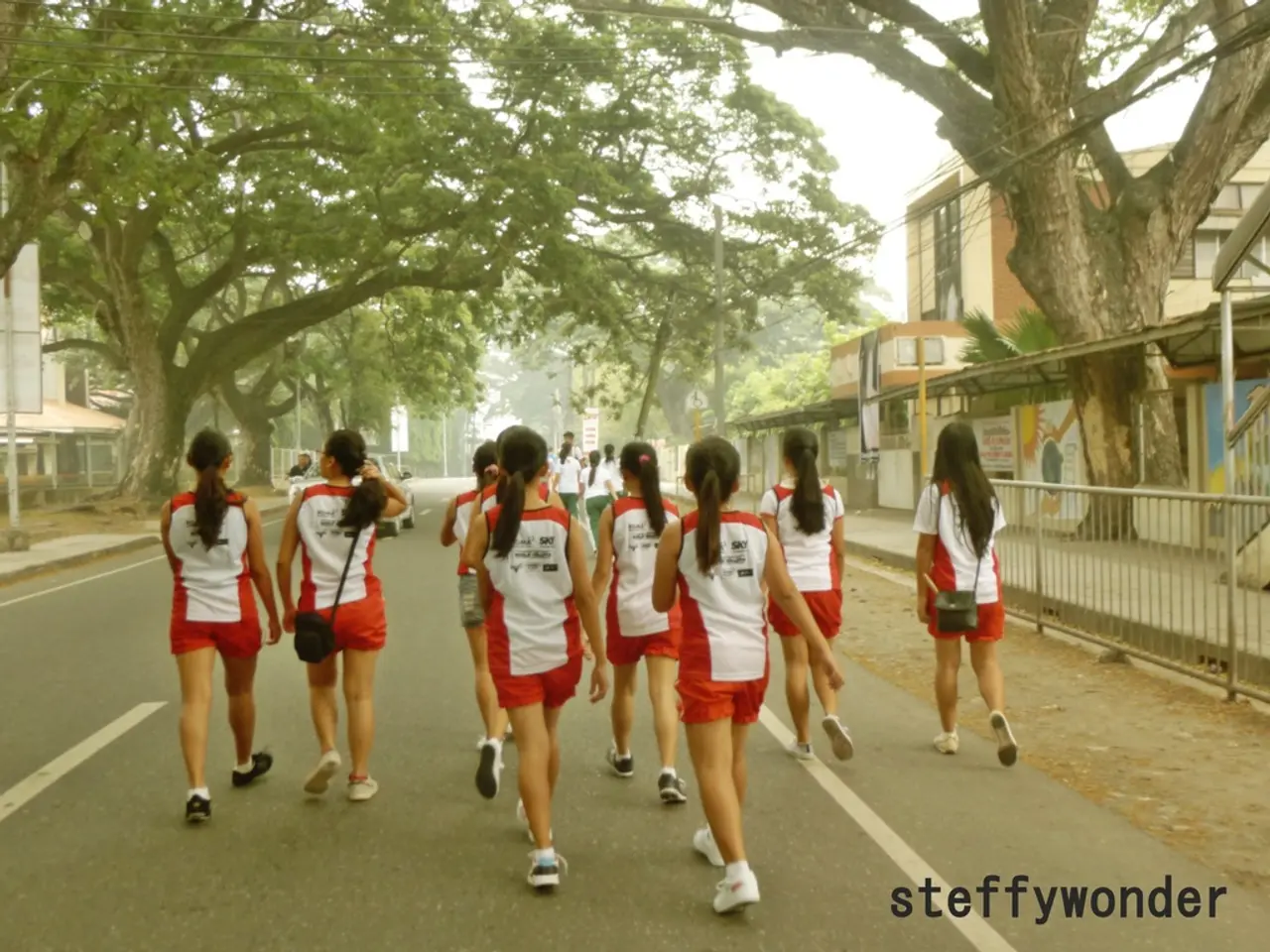Syria's Post-Assad Transition Signified by Forced Displacement and Homecoming
In a significant development, the first group of Syrian refugees returned home from Lebanon on July 29, 2025, under a new UN-developed repatriation plan with the Lebanese government. The evacuation was conducted via the Busra al-Sham humanitarian crossing in Daraa province, using a convoy of five buses.
However, the situation in Sweida, Syria, remains tense following a week of deadly fighting between Druze militias and Bedouin tribal groups. The fighting left hundreds of people dead, according to the Syrian Network for Human Rights, and caused a severe humanitarian crisis, leading to massive displacement of around 176,000 people, mostly to neighboring Daraa and Rural Damascus governorates.
The conflict erupted on July 12, 2025, and involved local Druze militias led by spiritual leader Sheikh Hikmat al-Hijri and pro-government Bedouin fighters. Human rights abuses have been widespread on both sides, including extrajudicial killings, looting, home burnings, and sectarian hate speech. The Syrian government has formed a committee to investigate abuses during the clashes, pledging to hold perpetrators accountable.
Many Syrians have been held back from returning due to the ongoing war, forced conscription under Syria's former government, and unpaid residency fines in Lebanon. The UN refugee agency (UNHCR) offers $100 in cash to each repatriated Syrian refugee, and the Lebanese authorities waive any fees or fines they owe. The UNHCR and the International Organization for Migration provide buses for the return journey of Syrian refugees under the new plan.
Despite the complexities and limitations of the repatriation process, the UNHCR also offers a range of services to returning Syrians, including cash grants, legal assistance, psychosocial support, livelihood opportunities, and other protection services. The Syrian transitional government, established after President Bashar al-Assad's ouster in 2024, has pledged to restore national security and resolve local tensions through negotiations.
The evacuation of a group of Druze residents from the city of Sweida on July 29 marks a small step towards resolving the ongoing crisis. However, stability remains fragile, and the final destination of the evacuees was not disclosed in the statement. The Lebanese authorities have repeatedly requested the repatriation of Syrian refugees over the years, as widespread poverty in the Mediterranean country and shrinking funding for aid agencies have made the situation increasingly challenging.
As the repatriation process continues, it is crucial to ensure the safety and well-being of returning refugees and to address the root causes of the conflict in Sweida and other affected areas in Syria. The international community must continue to support efforts to promote peace, stability, and human rights in the region.
[1] Syrian Observatory for Human Rights. (2025). Sweida crisis: Over 176,000 displaced as fighting continues. Retrieved from https://www.syriahr.com/en/?p=165678
[2] Amnesty International. (2025). Sweida: Abuses by all sides in Syria's Sweida crisis. Retrieved from https://www.amnesty.org/en/latest/news/2025/07/swedia-abuses-by-all-sides-in-syrias-swedia-crisis/
[3] Human Rights Watch. (2025). Sweida: Attacks on Healthcare Facilities Amid Conflict. Retrieved from https://www.hrw.org/news/2025/07/23/swedia-attacks-healthcare-facilities-amid-conflict
[4] Syrian Arab News Agency. (2025). Syrian government forms committee to investigate abuses during Sweida clashes. Retrieved from https://sana.sy/en/?p=157883
- The ongoing crisis in Sweida, Syria, raises concerns about human rights abuses, migration, and politics, as the conflict between Druze militias and Bedouin tribal groups has displaced over 176,000 people, causing a humanitarian crisis and highlighting the need for the international community to support peace, stability, and the protection of human rights in the region.
- The repatriation of Syrian refugees under the new UN-developed plan, started with the evacuation of a group of Syrians returning from Lebanon on July 29, 2025, must address the complex issues such as ongoing war, forced conscription, and unpaid fines, while ensuring the safety and well-being of returning refugees, and addressing the root causes of conflicts, including the recent violence in Sweida and other affected areas in Syria.






